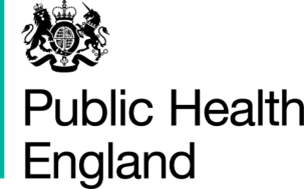Promoting and Teaching
Skills and Habits to Increase Wellbeing
What is wellbeing? When we experience more wellbeing we feel good and function well in our everyday lives. Wellbeing increases our ability to be mentally and physically healthy, perform well professionally and personally, thrive and flourish in good and more difficult times and generally enjoy a better quality of life.
Research tells us that the things that we do and the way that we think affects our wellbeing; there are practical things that we can do, but they take practice.

Empowering Young People
to Develop the Skills and Habits of Wellbeing
What is wellbeing? When we experience more wellbeing we feel good and function well in our everyday lives. Wellbeing increases our ability to be physically and mentally healthy, perform well at school or work, thrive and flourish in good and more difficult times and generally enjoy a better quality of life.
Research tells us that the things that we do and the way that we think affects our wellbeing; there are practical things that we can do, but they take practice.

Why promote & teach wellbeing?
The skills of wellbeing have to become habits and that’s not easy. Improving wellbeing has some similarities with getting physically fit – you don’t do it once and then forget about it – it requires constant attention, focus and effort.
So in the same way we think about physical fitness, we can promote and teach the skills to be mentally and emotionally healthy. If we develop the habits that increase our wellbeing we can make the most of opportunities that life may send our way and deal with difficulties as they arise.
How do we do it?
The skills of wellbeing can be learnt by young people and adults in the classroom and in more informal settings. We have curricula and a wide range of training programmes to support you as you teach the skills of emotional resilience and wellbeing, and increase your own.
Much of what we learn and how we live is influenced by those around us – parents, teachers and other significant adults for young people and our leaders and peers as adults. If the skills of wellbeing are being used and modelled in everyday life they get noticed and passed on. So we ensure that anyone who is interested in increasing the wellbeing of those around them also considers how to increase their own. Our approach is based on this simple premise – if we want to pass on the skills of wellbeing to others, apply them in our own lives first.
Research tells us there are many ways to increase resilience and wellbeing – here are some of the themes that we focus on:
-
Resilient Thinking
The way in which we interpret situations has a significant impact on how we respond to them. Those who have developed resilience skills are able to; think optimistically while remaining wedded to reality, maintain perspective, express their emotions effectively and reach out to others. Those who have developed resilient thinking skills have competence to make the most of opportunity and bounce back from difficulty.
Latest Articles

2015 and 2016 Penn Resilience Programme Training Dates
The Penn Resilience Programme Teacher Training How to Thrive is the only european based organisation to facilitate this training, that is open to delegates from schools and services across the …

Media Navigator
Do you think that increasing understanding of how to navigate the media is important for young people? Do you think its valuable for young people to be able to; Critically …

Promoting Children and Young People’s Emotional Health and Wellbeing
Today (20th March 2015) Public Health England have published guidance for head teachers and college principals on the 8 principles for promoting emotional health and wellbeing in schools and colleges. …